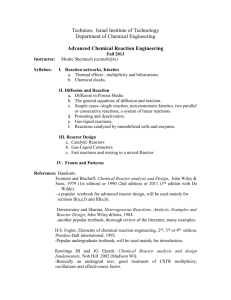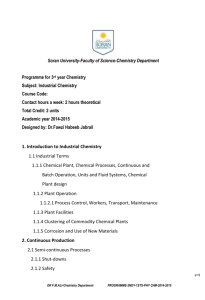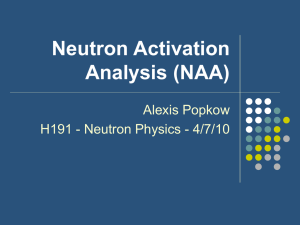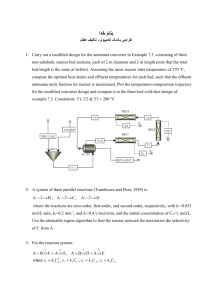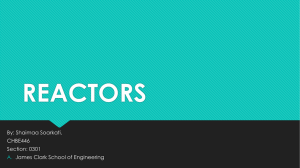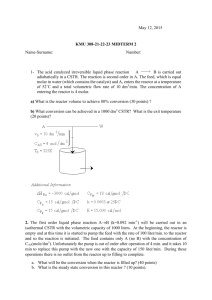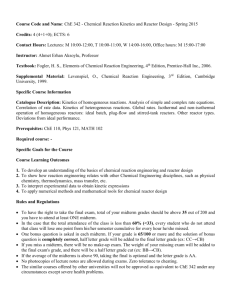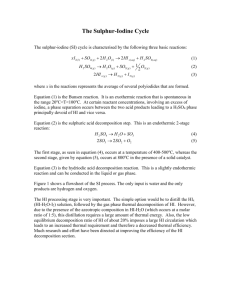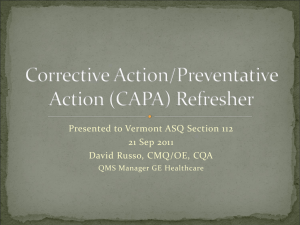Reactor Analysis
advertisement
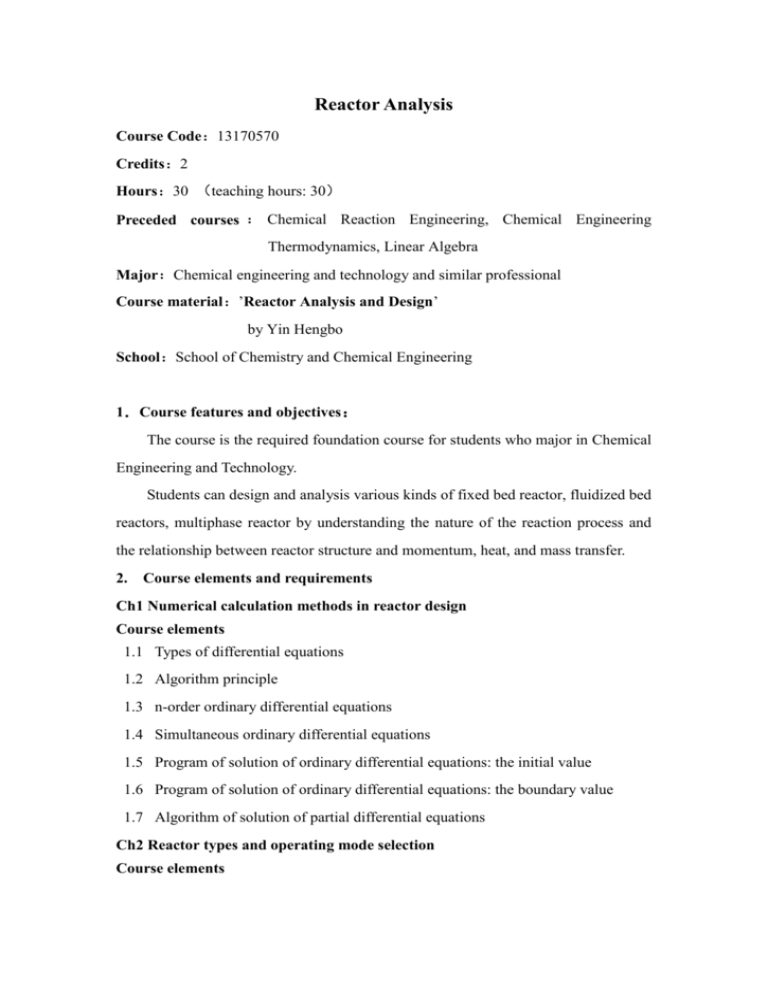
Reactor Analysis Course Code:13170570 Credits:2 Hours:30 (teaching hours: 30) Preceded courses : Chemical Reaction Engineering, Chemical Engineering Thermodynamics, Linear Algebra Major:Chemical engineering and technology and similar professional Course material:’Reactor Analysis and Design’ by Yin Hengbo School:School of Chemistry and Chemical Engineering 1.Course features and objectives: The course is the required foundation course for students who major in Chemical Engineering and Technology. Students can design and analysis various kinds of fixed bed reactor, fluidized bed reactors, multiphase reactor by understanding the nature of the reaction process and the relationship between reactor structure and momentum, heat, and mass transfer. 2. Course elements and requirements Ch1 Numerical calculation methods in reactor design Course elements 1.1 Types of differential equations 1.2 Algorithm principle 1.3 n-order ordinary differential equations 1.4 Simultaneous ordinary differential equations 1.5 Program of solution of ordinary differential equations: the initial value 1.6 Program of solution of ordinary differential equations: the boundary value 1.7 Algorithm of solution of partial differential equations Ch2 Reactor types and operating mode selection Course elements 2.1 The selection of single reaction operating conditions 2.2 The smallest ideal reactor types 2.3 The principle of multireaction 2.4 Reactor types and heat transfer modes 2.5 Reactants mixture 2.6 Fluid distribution in tubular reactor 2.7 Bypass and dead end 2.8 Estimation of damage degree Ch3 Batch reactor Course elements 3.1 Isothermal batch reactor 3.2 Non-isothermal batch reactor 3.3 Optimal operation strategy and control strategy Ch4 Plug flow reactor Course elements 4.1 Continuity equation, energy equation and momentum equation 4.2 Kinetic analysis of non-isothermal data 4.3 Design of tubular plug flow reactor Ch5 Homogeneous continuous flow stirred tank reactor Course elements 5.1 Impeller stirred tank reactor 5.2 Power calculation of single-phase Newtonian fluid 5.3 Introduction to power calculation of non-Newtonian fluid 5.4 Flow pattern and the baffle plate 5.5 Feeding methods 5.6 Heat transfer of stirred reactor 5.7 Standard design Ch6 Process design of fixed-bed reactor Course elements 6.1 Thermostatic reactor 6.2 Adiabatic gas reactor 6.3 Equipment design of adiabatic reactor 6.4 Optimal design of multi-stage indirect heat exchange-type catalytic reactor 6.5 Optimal design of continuous heat exchange fixed-bed catalytic reactor 3.Assignment of course periods. Chapters Lecture Experiment Ch1 Numerical calculation methods in reactor design 2 0 Ch2 Reactor types and operating mode selection 4 0 Ch3 Batch reactor 6 0 Ch4 Plug flow reactor 6 0 Ch5 Homogeneous continuous flow stirred tank 8 0 reactor Ch6 Process design of fixed-bed reactor 4 0 4. Syllabus description (Experimental content, basic requirements, exercise requirements and other necessary explanations may be included): (1) The experimental requirements are contained in the experimental syllabus. (2) Teaching by multimedia (3) Appropriate amount of homework is to be assigned ever time after lessons which mainly contains exercises and questions attached in the textbook. (4) one or two lectures on the progress of reactor analysis and designwill be given by professors. 5. Bibliography Howard F. Rase ‘Chemical reactor design’ Chemical Industry Press, 1st edition, Beijing, c1982.
